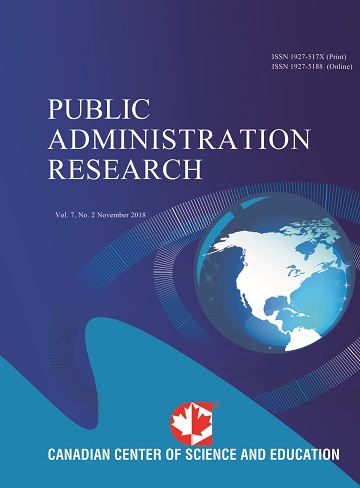Federalism and Intergovernmental Relations in Africa: Retrospect and Prospects from Nigeria
- Taiwo Olaiya
Abstract
This article diagnostically examined the several competing perspectives on the beleaguered nature of intergovernmental relations in Nigeria. Tracing the evolution of intergovernmental relation in Nigeria and espousing its legal, political and governance antecedents, the paper hazarded the undercurrent for the lingering conflicts between the center and the component units. The article also critically analyzed the impacts of the erstwhile British colonial strategy of division into regions as a means for administering the country and exploration of the mineral endowments in the 1950s on the composition and the current nature of predatory power that the center currently wields, much to the detriments and underfunding of the component units in the federation. The paper found evidences to showcase that because the British colonialists unduly queered the political pitch by allocating more seats to the North than to each of the other two regions at the center, intergovernmental relations in Nigeria has been quite contentious. If anything, a mutual suspicion between the North-dominated Federal Government and the Southern component units became a logical end. We concluded, among others, that notwithstanding the ample provisions in the 1999 Constitution for veritable intergovernmental relationship in Nigeria, there are still the intricate issues of regional domination of the center, leading to lack of political will to induce proper constitutional implementations.- Full Text:
 PDF
PDF
- DOI:10.5539/par.v5n2p87
Journal Metrics
h-index (2017): 7
i10-index (2017): 6
h5-index (2017): 7
h5-median (2017): 13
Index
- COPAC
- CrossRef
- DTU Library
- EBSCOhost
- EuroPub Database
- Excellence in Research for Australia (ERA)
- Genamics JournalSeek
- Ghent University Library
- Google Scholar
- Harvard Library
- Infotrieve
- Jisc Library Hub Discover
- LOCKSS
- Mir@bel
- Norwegian Centre for Research Data (NSD)
- Open J-Gate
- PKP Open Archives Harvester
- Publons
- ROAD
- Scilit
- SHERPA/RoMEO
- Stanford Libraries
- Ulrich's
- UniCat
- Universe Digital Library
- UoS Library
- WorldCat
Contact
- Gabriel TaiEditorial Assistant
- par@ccsenet.org
